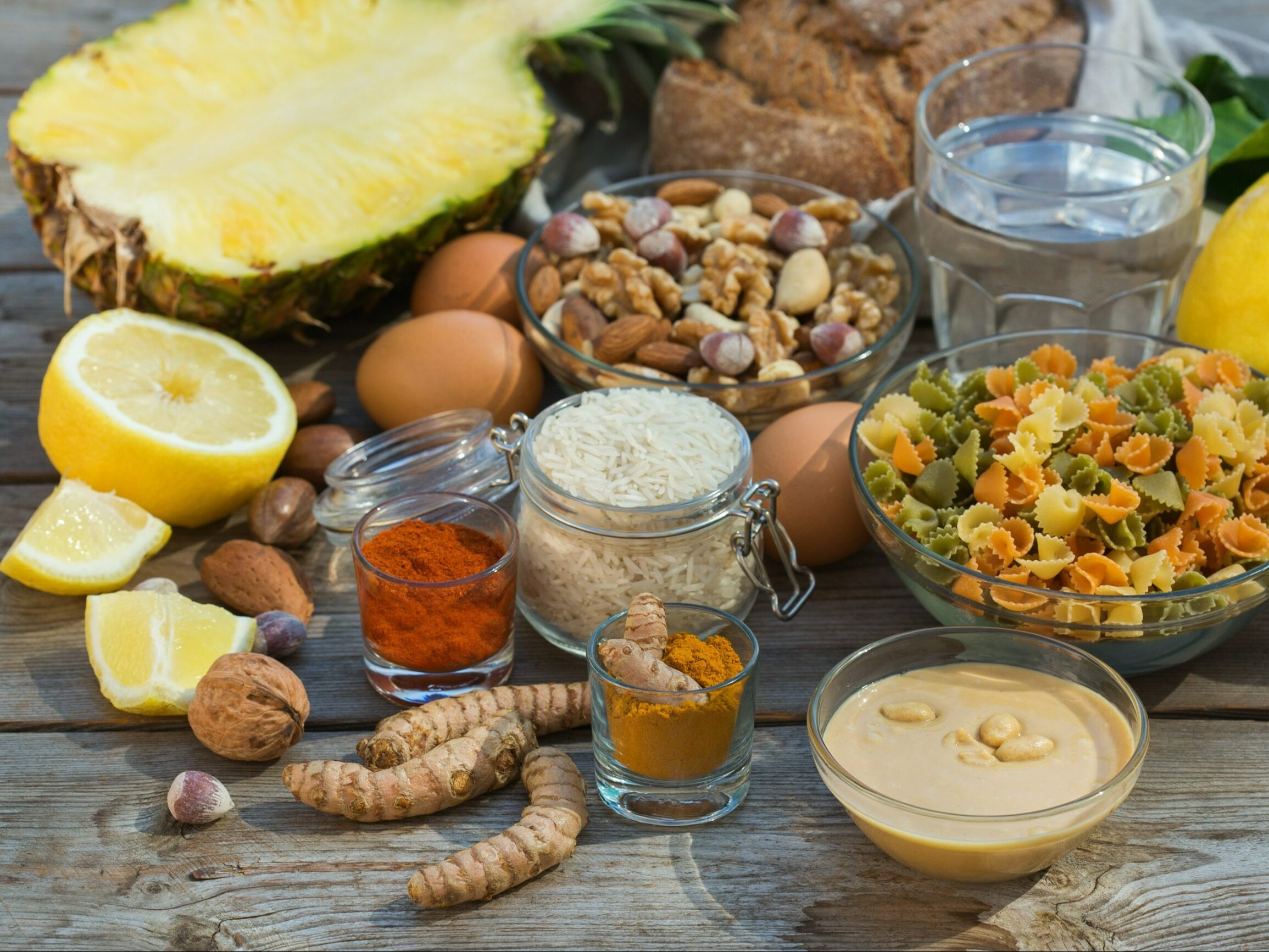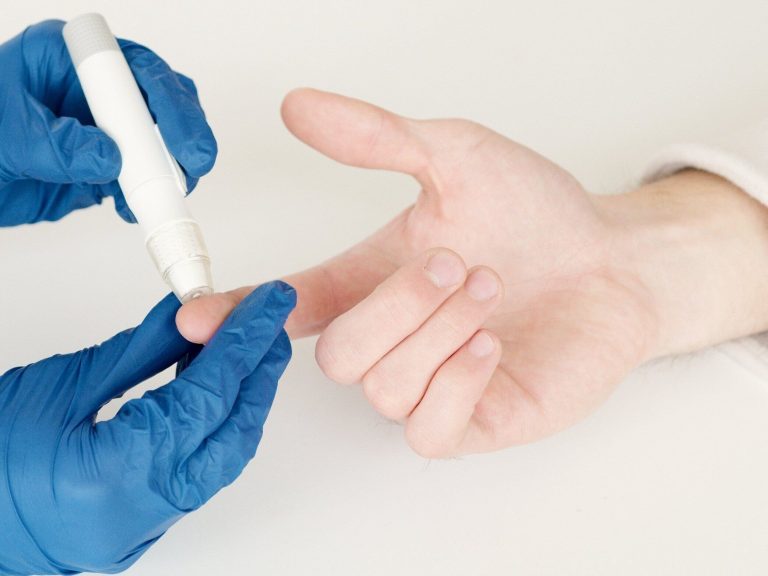Gout – diet. What products should you avoid and what are allowed for gout?

People suffering from gout should make changes to their daily diet to reduce the concentration of uric acid in the body. Failure to follow the gout diet worsens the symptoms of the disease and increases the risk of serious complications. Dietary restrictions include, among others: giving up eating products with a high content of purine compounds. What is the urate diet? What products should you avoid and what are allowed for gout? We explain.
- Gout – causes, symptoms, treatment
- Purines – what are they?
- Gout – diet. What products should you avoid if you suffer from gout?
- Gout and diet. Products allowed in a low-purine diet
- Diet for gout – what else should you remember?
Gout, also known as gout, gout or arthritis, is a troublesome disease that hinders normal functioning, causing joint pain and limiting physical fitness. People suffering from symptoms of gout should follow a low-purine diet, which reduces the risk of deposition of sodium urate crystals in the joints. The use of a urate diet is aimed at reducing the secretion of uric acid and avoiding the exacerbation of the disease, which may lead to serious complications. Failure to follow the rules of the gout diet increases, among others: risk of joint damage.
Gout – causes, symptoms, treatment
Gout is an inflammatory disease of the joints caused by disorders of uric acid metabolism (excessive production of uric acid or impaired excretion of uric acid from the body). If the level of uric acid in the blood increases, sodium urate present in the body in the form of crystals begins to accumulate in the tissues, causing severe pain (gout attack). Most often, monosodium urate acid crystals accumulate in small joints (e.g. big toe joints), but they can also begin to accumulate in internal organs, causing various complications.
High levels of uric acid in the blood can have various causes. Disorders of uric acid metabolism and excessive concentration of uric acid in the blood result in, among others, incorrect diet. The risk of developing gout also increases due to alcohol abuse. Other causes of gout include, for example, a congenital metabolic defect, trauma, taking certain medications, hypothermia and dehydration. Gout may be accompanied by other diseases, e.g. lipid disorders, diabetes, hypertension and ischemic heart disease. Symptoms of gout include:
-
severe inflammation of a single joint (most often in the big toe),
-
severe pain in the affected joint,
-
redness, swelling and warming of the skin,
-
exfoliation of the epidermis,
-
general symptoms (e.g. increased body temperature, chills, malaise).
Most often, gout is associated with a diet rich in purines and alcohol abuse. Gout is relatively rare in women (it may develop after menopause). Importantly, not all patients with increased uric acid levels in the blood develop gout.
Starting a urate diet at the first symptoms of gout reduces the risk of its exacerbation and frequent attacks of troublesome pain.
Purines – what are they?
Purines are heterocyclic compounds forming aromatic rings that are found in most natural and processed foods. We distinguish products with high purine content, products with medium purine content and products with low purine content.
Gout – diet. What products should you avoid if you suffer from gout?
The most important rule of the gout diet is to refrain from eating products with high and medium purine content. Foods with high and medium purine content include:
-
seafood,
-
fat meat,
-
meat products (e.g. cold cuts),
-
meat stocks,
-
bone broths,
-
offal,
-
oily fish,
-
fish products (e.g. canned fish, smoked fish),
-
meat jellies,
-
dry legume seeds,
-
rhubarb,
-
spinach,
-
sorrel,
-
poppy,
-
chocolate,
-
spices,
-
hot spices (e.g. black pepper),
-
mustard,
-
mushrooms (e.g. button mushrooms, boletus mushrooms, oyster mushrooms),
-
beer and other alcoholic beverages (except wine),
-
sweetened fruit juices, fruit drinks, carbonated drinks,
-
natural cocoa and soluble cocoa.
The above foods are not recommended for people suffering from gout. From your daily diet, you must first of all eliminate fatty meat and its products, offal, fatty fish and fish products, seafood, meat broths and bone broths, fats of animal origin, which include not only fatty meats and butter, lard and tallow, but also fatty dairy products, e.g. processed cheese and heavy cream. These products contain a lot of purine compounds, which affect the concentration of uric acid in the blood.
The gout diet should also be low in sugar, sweets and confectionery. It is essential to stop drinking alcohol – especially beer.
Gout and diet. Products allowed in a low-purine diet
The gout diet has room for many tasty and healthy food products. Products recommended for people diagnosed with uric acid diathesis include:
-
cereal products (e.g. whole grain bread, buckwheat, pasta and other flour products),
-
vegetables (e.g. carrots, celery, cabbage, cauliflower, kohlrabi, eggplant, cucumbers, peppers, parsley, tomatoes, radishes, potatoes),
-
lean meat and lean fish (in limited quantities),
-
vegetable oils rich in unsaturated fatty acids,
-
milk and semi-skimmed and skimmed milk products (e.g. natural yogurt, kefir, sour milk, cottage cheese),
-
eggs,
-
natural fruit juices without sugar and fruit purees.
Dietary treatment of hyperuricemia also includes the use of a low-calorie diet, which allows for a healthy reduction of body weight in overweight and obese people, daily physical activity and drinking large amounts of still water (about 2 liters a day). Following the principles of a low-purine diet is very important because it helps reduce the risk of gout attacks, damage to the musculoskeletal system and other complications.
Diet for gout – what else should you remember?
The diet in gout should be varied, which helps prevent nutritional deficiencies. It is very important to eat meals regularly and compose a menu in accordance with the principles of healthy eating. The daily menu should include vegetables and fruits, complex carbohydrates, valuable sources of protein and healthy fats. The way you prepare meals also influences your health – your diet should include as many cooked foods as possible. It is not recommended to eat fried and stewed foods.
Any doubts regarding products that may be included in the urate diet should be discussed with an experienced dietitian. In the case of gout, the advice of a dietitian is especially important if the patient also suffers from other diseases.
Sources:
-
Bożena Targońska-Stępniak, Gout. Rheumatologist’s library, Medical Education Publishing House, 2018
-
Mirosław Jarosz, Lucyna Pachocka, Gout. Advice from doctors and dieticians, PZWL Medical Publishing House, Warsaw, 2020
-
Majewski M., Bońkowski M., Gout. Diet and menus, Escape Magazine Publishing House, 2014






